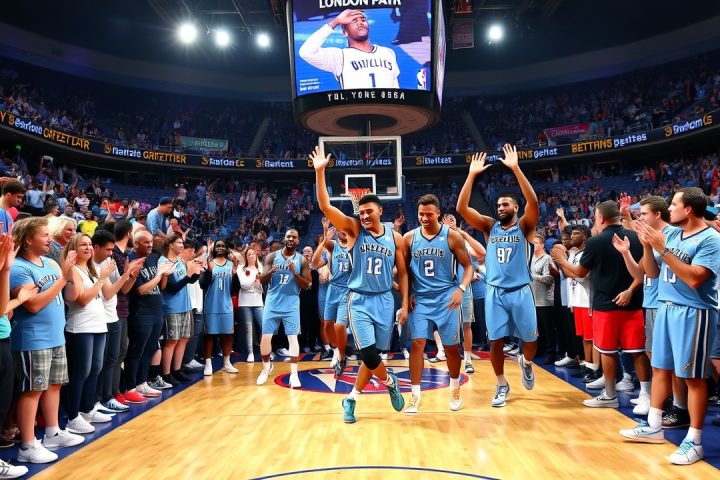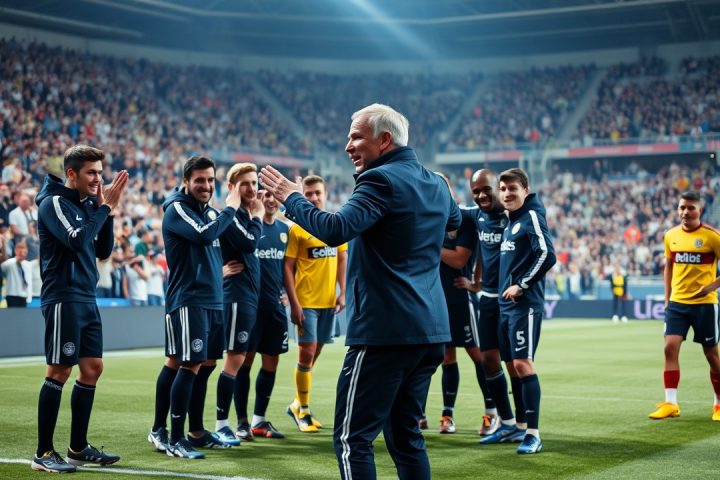Bayer Leverkusen’s Transformation
Bayer Leverkusen is currently undergoing a significant transformation, indicated by the recent departures of several key players. Just three weeks ago, during the preseason, head coach Erik ten Hag reaffirmed his belief in midfielder Granit Xhaka‘s role within the team, stating,
“Granit is a key player…too important to us to let him go.”
Despite his assurances, Xhaka has since left for Sunderland, marking a bitter blow to Ten Hag’s plans after the club had already witnessed the exits of prominent talents like Florian Wirtz, Jeremie Frimpong, and Jonathan Tah, who joined Real Madrid, Liverpool, and Bayern Munich respectively.
Challenges Ahead
The summer transfer window presented a harsh reality for Leverkusen fans. After the departure of innovative coach Xabi Alonso, the hope was that the most significant changes had already taken place, but losing Xhaka has raised concerns about the squad’s depth and experience. Having contributed immensely to their success in the 2023 season, Xhaka’s leadership will be difficult to replicate. The absence of Tah, Wirtz, and goalkeeper Lukas Hradecky, who recently signed with AS Monaco, leaves Leverkusen needing to find maturity and resilience within a younger squad.
Their successful 2023-24 campaign, where they clinched both the Bundesliga title and DFB-Pokal, relied heavily on late-game heroics from players like Wirtz and Xhaka—individuals who not only excelled on the field but also fostered a winning mentality within the team. Leverkusen now faces the possibility of a challenging season ahead.
Strategic Changes and Future Outlook
Simon Rolfes, the sporting director, has reflected on Ten Hag’s appointment, emphasizing the club’s desire to develop talents and maintain their attacking style of play. Ten Hag, inheriting a squad in transition, has expressed his commitment to elevating his own reputation after a tumultuous period at Manchester United. He has distanced himself from his past experiences, emphasizing his enthusiasm for the new role and his focus on building a strong team identity.
In light of the squad’s needs, Rolfes has made strategic signings, including young talents such as 19-year-old Ibrahim Maza and defender Jarell Quansah. However, the expectation on Malik Tillman, brought in to add depth after Wirtz’s departure, could be seen as unfair given his current status as a developing player. His absence due to injury has further complicated Ten Hag’s preparations for the upcoming Bundesliga season.
The juxtaposition of Leverkusen’s glorious past with the uncertainties of the future is palpable. As they navigate this rebuilding phase, old faces like Robert Andrich have opted to stay, voicing a collective sentiment among players to move on from the past.
Moreover, recent signings like the young winger Ernest Poku highlight the club’s commitment to growth, although concerns about squad depth, particularly in the attacking positions, persist. While Ten Hag’s squad has the potential for development, they are still seeking to fill critical gaps, particularly in replacing Frimpong.
Conclusion
Overall, the challenge is significant as Leverkusen prepares for its upcoming highs and lows of the season. Ten Hag remains optimistic, viewing the situation as an opportunity for renewal:
“We have a new challenge. The team, the coach, the board — we will develop a new era here.”
It remains to be seen how successful he will be in harnessing the talents of a more youthful and adaptable squad as they embark on this journey together.




